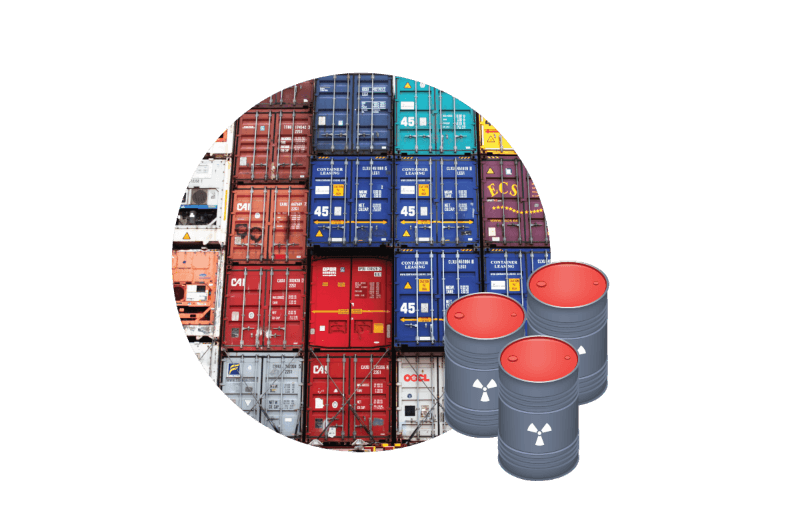
IMO and Goods Restrictions
For all goods, it is important to comply with international and local regulations, hereunder to ensure all required permissions and documentation is in place prior to shipment.
It is the customer's responsibility to ensure that the intended route of the goods you book with us is feasible and in compliance with any operational or legal restrictions at the involved ports and terminals.
Unifeeder maintains a list of general restrictions and conditions for goods, including dangerous goods. The list is not to be understood as fully comprehensive, and you must still comply with local regulations.
Check the list via the below buttons.
If your goods have other relevant restrictions than here mentioned, always request for Unifeeder acceptance before booking.
Download IMO and Goods Restrictions

For safety, legal, and operational reasons, Unifeeder reserves the right, anytime to request additional documentation as/if needed, and with short notice, to decline any shipment of unacceptable goods, including Dangerous Goods.
Any extra cost, losses, or expenses (incl. fines, penalties, etc.) that might arise due to shipment of the aforementioned goods shall be for the customer’s account.
Dangerous Goods (DG) guidelines
It is customer responsibility to handle and declare DG documentation correctly, according to the IMO IMDG Code. Shipments of DG cargo are subject to correct DG declaration, labeling, packing, stuffing, and documentation, and must be strictly in accordance with the last amendment in force of the IMDG Code and the relevant requirement by competent authorities.
Please provide the DG documents and complete information well in advance, at locally agreed deadlines, and always prior to loading on Unifeeder vessels.
Unifeeder might request additional documentation for final approval such as:
- DG Manifest
- DG Declaration
- Valid Tank Certificate
- MSDS
- Approvals from, Port Authority, Fire Brigade, Port Security, and/or other Competent Authority
- Shipper declarations
- Weathering Certificate
- Vanning certificate
- Flashpoint of the commodities
- Various statements



